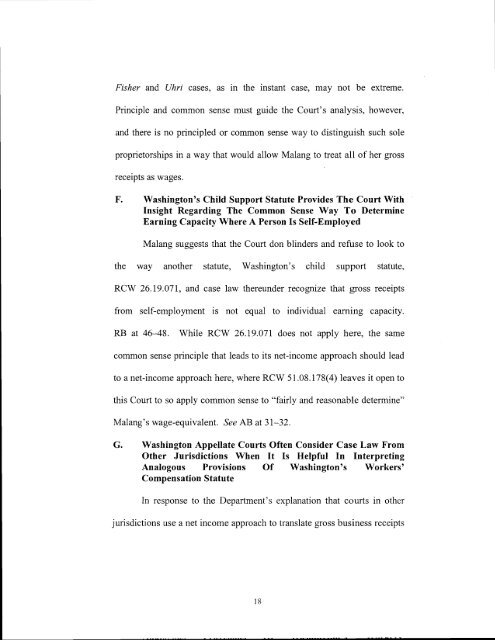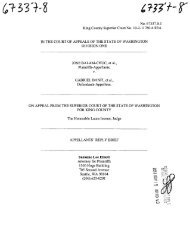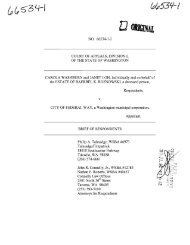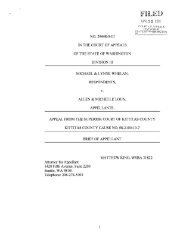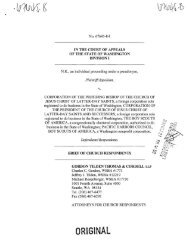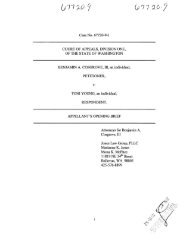Appellants' Reply Brief - Washington State Courts
Appellants' Reply Brief - Washington State Courts
Appellants' Reply Brief - Washington State Courts
Create successful ePaper yourself
Turn your PDF publications into a flip-book with our unique Google optimized e-Paper software.
Fisher and Uhri cases, as in the instant case, may not be extreme.<br />
Principle and common sense must guide the Court's analysis, however,<br />
and there is no principled or common sense way to distinguish such sole<br />
proprietorships in a way that would allow Malang to treat all of her gross<br />
receipts as wages.<br />
F. <strong>Washington</strong>'s Child Support Statute Provides The Court With<br />
Insight Regarding The Common Sense Way To Determine<br />
Earning Capacity Where A Person Is Self-Employed<br />
Malang suggests that the Court don blinders and refuse to look to<br />
the way another statute, <strong>Washington</strong>'s child support statute,<br />
RCW 26.19.071, and case law thereunder recognize that gross receipts<br />
from self-employment is not equal to individual earning capacity.<br />
RB at 4648. While RCW 26.19.071 does not apply here, the same<br />
common sense principle that leads to its net-income approach should lead<br />
to a net-income approach here, where RCW 5 1.08.178(4) leaves it open to<br />
this Court to so apply common sense to "fairly and reasonable determine"<br />
Malang 's wage-equivalent. See AB at 3 1-32.<br />
G. <strong>Washington</strong> Appellate <strong>Courts</strong> Often Consider Case Law From<br />
Other Jurisdictions When It Is Helpful In Interpreting<br />
Analogous Provisions Of <strong>Washington</strong>'s Workers'<br />
Compensation Statute<br />
In response to the Department's explanation that courts in other<br />
jurisdictions use a net income approach to translate gross business receipts


